Episode 8: The Kids Are Alright
View this post on InstagramA post shared by Lily Silver (@lilycornellsilver) on
Guest Bios
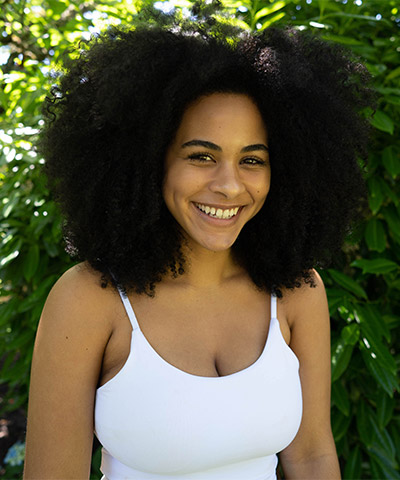
Raina Morris is a comedy writer from Portland, Oregon.
Instagram: @quakerraina | Twitter: @quakerraina
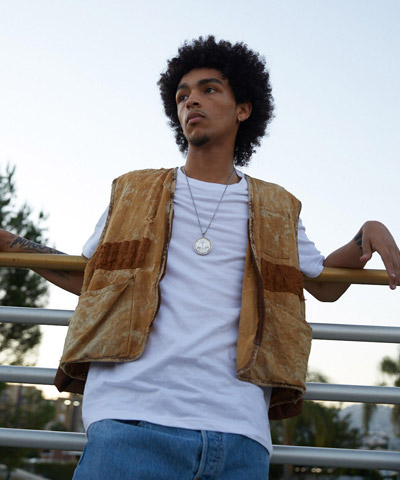
Kateel Barnett is an all-around artist from Seattle signed to Atlantic Records. Kateel has a project out now called Mind Over Matters.
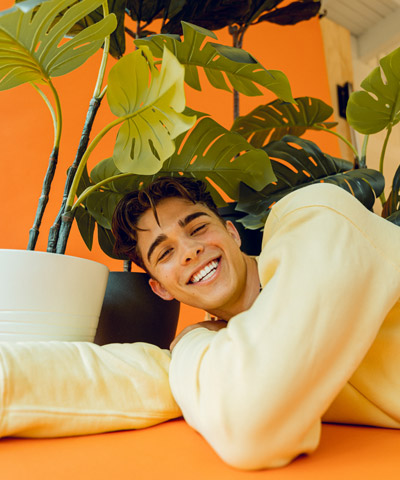
Billy Keogh is a model and also works in cloud security. He is a Seattle native with a passion for people and mental health.
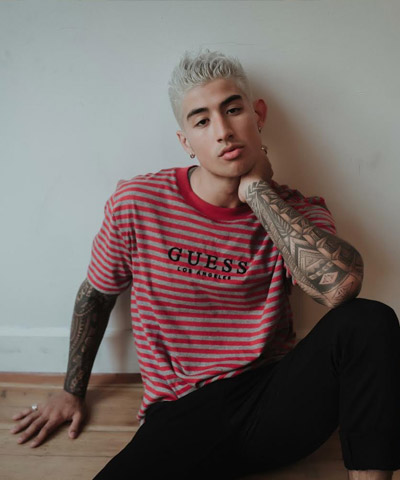
Tyson Andrews is a University of Washington graduate, a full-time nerd and a part-time model.
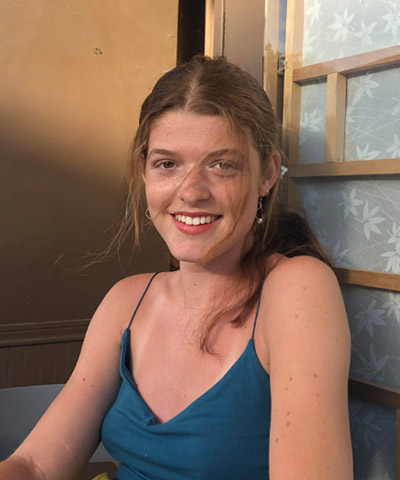
Rae Hirschfeld-Smith is a photographer, multimedia artist, and third year student at Occidental College in Los Angeles. She enjoys being outdoors, cooking group meals, and most reality tv. Interested in the intersection between art, media, and urban space, she is creating her own major of Interdisciplinary Cultural Studies. Rae is passionate about utilizing creative means to push for a more equitable, just world.
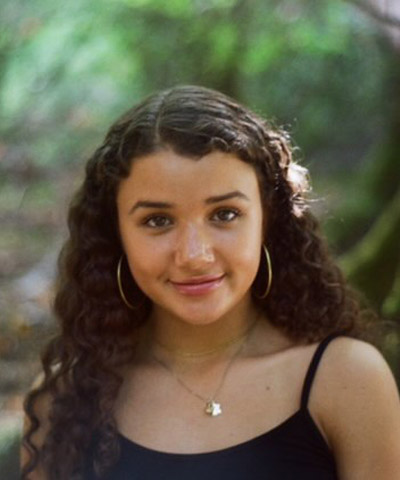
Mikaela Lipsky is a sophomore studying Science Management and Neuroscience. She is passionate about, and involved in the movements for, racial justice and women’s reproductive rights. At her college, Mikaela is a sprinter for the track team, a Black Student Association member, and an enthusiastic addition to any weekend surf trip.
Transcript
Lily Cornell Silver: I’m Lily Cornell Silver, and welcome to Mind Wide Open, my mental health-focused interview series. Today is a super special episode because I am talking to a panel of my friends and peers about what mental health looks like in our generation. I believe that mental health disproportionately affects our generation because of all the pressures that are placed upon us societally, politically, economically, environmentally. So I’m really excited to talk to my friends today about how that has manifested and shown up in their own lives. We’re gonna talk about their experiences with anxiety, depression, suicidal ideation, intergenerational trauma, and I hope you guys get a lot out of it. Thank you so much for watching. Well, you guys, thank you so much for being here. I’m super excited to talk to you all.
Kateel Barnett: Woo.
Lily Cornell Silver: So in my work I try to be really cognizant about what aspects of mental health are socially acceptable to talk about because I think mental health in general is very stigmatized, but there are definitely certain elements that are less stigmatized and more stigmatized. I think one of them that’s widely misunderstood is that idea of intergenerational trauma, especially among marginalized communities and people of color. So do any of you have experiences with intergenerational trauma that you’d want to share?
Tyson Andrews: My name is Tyson. I’m 23 years old. For me, it was all about the physical acts of generational trauma because, full transparency, I didn’t grow up with much of an identity, which later I learned is very common in indigenous communities. I’m Hawaiian and Samoan and then a whole bunch of other stuff according to 23andMe, but those are kind of my predominant genes there. But realizing that domestic abuse, verbal abuse, sexual abuse was so prevalent in my family and I didn’t know about it, but seeing the road signs and the spouses people end up with and how they treat you and your children or even just, if I could be crass, going in therapy and talking about how I lost my virginity and then learning that that was not appropriate, that that wasn’t a safe space. Learning you were abused six years after the fact is a very interesting moment, I would say. So that was something that I dealt with a lot in my early 20s. And then in terms of generational trauma when it comes to just your ethnic background, symbolic annihilation, people try to erase your past or the families you come from, saying that, “Oh, you belong to this group. You belong to this group.” And being biracial but no one really knowing what I am was a big part of me growing up. I think I’ve been called every racial slur there is, either as a joke or –
Raina Morris: Same.
Tyson Andrews: Yeah. Either as a joke or actually derogatorily because people don’t know what I am, but they want to hurt me but they don’t know how. Honestly, the most intergenerational traumatic thing I could experience was the fact that I didn’t know my ethnic background until I was 20 years old. I grew up for a while thinking I was just Chinese, and my mom claimed that she is a proud Chinese woman. But after doing some DNA tests and meeting some family and the way puberty kicked my ass like, “You don’t look like a Chinese boy,” which isn’t a bad thing. But I think that’s something that indigenous groups especially suffer from is for some reason even still the model minority within a bloodline will try to kind of snuff that out because it’s still seen as maybe the savage or tribal or something that’s impure within a bloodline, even though it seems like such a crazy notion. So I think, to answer your question, not being able to have an identity because my family wasn’t proud of who they were or their spouse or the children they had, I think that was the biggest thing for me growing up. And that turns into a lot like self-loathing and self-image and how that feeds into how you view yourself when you don’t even really know who you are from a fundamental level.
Raina Morris: So I’m Raina. I am 23 years old. I’m a recent graduate of college, where I was studying health science and psychology. That has been something that I originally learned that intergenerational trauma exists and is a physical thing in our genomes in school. I was absolutely shocked.
Lily Cornell Silver: How old were you when you learned about it?
Raina Morris: In college, 19, 20, and literally because I was taking classes on it. I don’t know how many people even learn about it in college. But, yeah, it’s a huge conversation in public health because in the black community and the indigenous communities in most countries, but especially in the United States, there is so much just intrinsic trauma. I’ll speak for myself. There are things that I thought were normal that I was realizing were because of history, you know? Right now all of my brain is thinking about policing and prisons and relationships with school because that’s what’s been on the collective mind lately. But I think just going into academia and being around so many people and so many more white people who had had very different upbringings than me and realizing not everyone is innately afraid of the police or people trust calling the police was so crazy to me. And I think that’s becoming more of a thing now. People are finding out that that’s crazy. But on a personal note, I think – I’m biracial, so I also have an understanding of how my white family navigates the world versus how my black family navigates the world. And so I think I may have started to notice differences there, too, at a younger age than I thought, if that makes sense.
Lily Cornell Silver: Yeah, definitely.
Kateel Barnett: First of all, I’m Kateel. Kateel Barnett is my full name. I’m from Seattle. I’m 21 years old now. To be honest, and my dad tells me this all the time, I do come from a really polarizing situation. My dad’s from Chicago and Atlanta, and we’re pretty sure we know what our ancestors had to go through. I’m sure that there’s deep-rooted things and deep psychological things that almost run through our veins. There’s things that affect people differently with colorism. There’s things that affect people differently with where they live. My dad is dark-skinned, and he’s had a lot of different experiences that for me, I haven’t experienced. We see a lot of fear and a lot of misunderstanding that happens with people, and it seems like predominantly between the black and white races against each other. It seems like it’s something that’s existed far beyond what where we are now, and it’s something that’s deep-rooted that’s gonna take a lot of work.
Mikaela Lipsky: I’m Mikaela Lipsky. I’m 19 years old. I agree with what Kateel is saying, and I think that I can’t imagine how long it’ll take to undo all of that. In my opinion, we can’t undo any of that until we – our entire country can really look at our history and come to give reparation for the pain that was caused. I think that to do that as an – to reconcile your own trauma as an individual needs to be coinciding with the recognition as a country and as a history as a whole. So I think that it’s really hard to do that individually when you still don’t see change and acknowledgment from the place you live.
Kateel Barnett: I wanted to just chime in real quick ’cause I think reparations, sometimes I flip things and think about things, how they could be used as a metaphor. Reparations, obviously we talk about reparations being monetarily as if that’s supposed to fix all of the psychological things. But I think that, yeah, that should happen for sure. But I think before that happens, there needs to be emotional reparations.
Mikaela Lipsky: Completely, completely.
Kateel Barnett: There needs to be understanding, “Yo, I’m gonna take a step back and realize I don’t really understand what’s going on, and I want to learn what’s going on so that that can affect my actions going forward.”
Mikaela Lipsky: Accountability, yeah.
Kateel Barnett: Yes, accountability.
Lily Cornell Silver: Billy, is there anything that you want to add on that topic? And I also wanted to ask you something that you and I have talked about is your experience growing up in a religious background and a religious household and how that directly affected your mental health.
Billy Keogh: Of course. My name is Billy. I am 21 years old. Growing up in religion specifically, it’s positive and negative, like anything in life, right? I grew up in a very different level of religion. My dad’s a minister himself, and so I grew up in a very – in a strict environment, let’s just put it that way. I think for me growing up, dealing with anxiety as a kid, and then one of my sisters very much dealing with anxiety as a kid and more of just the blanket statement with religion where it’s like, “Oh, just cast all your worries on God. It’ll be fine.” It’s this kind of brush mentality. It’s that you don’t have the tools necessarily to really understand what you’re going through or a recognition or even just the reality of it as well because it’s much of, “Oh, if you believe this, you shouldn’t be feeling this,” right? When in reality, those things, those aren’t the same. So at least for my journey, it was a lot of being like, “Oh, wow, I need to learn a lot about myself in this, and I need to learn a lot about my stake as a human, my stake as – what anxiety means to me and what depression means to me and not feeling guilty with that, either, ’cause I feel like there’s a lot in religion that can make you feel guilty for feeling a certain type of way that’s not how you’re supposed to feel. And that in itself is an anxiety trip.
Lily Cornell Silver: Right. Not to speak down or negatively on religion at all, but I’ve had a lot of people say to me, “I was experiencing so many mental health issues until I – I didn’t even realize it was happening until I broke out of the religious environment that I was in and realizing there are other ways to cope besides fully relying on a higher power to alleviate what I’m feeling or feeling guilty that I am not feeling good because I shouldn’t be.”
Billy Keogh: Yeah. If we want to get deep for a second, even as a kid I had suicidal tendencies. I had very, very intense thoughts as a kid ’cause I was very isolated for a period of time, and just that intensity and just being – it’s weird because it masks it with this feeling of guilt, which only makes it feel worse, right? It’s like why do I feel like I can’t sleep with a knife in my room because I feel like something might happen even though I know that it won’t? But my anxiety and my panic is kicking in and telling me to not have this object in my room, but it’s like, “Oh, but I should just pray and that should go away,” right? And then it doesn’t, and then it just creates this whole cycle of – it just makes it for a worse experience.
Lily Cornell Silver: Rae, you and I were anxiety buddies in high school. [Laughs] You were a really good example of someone that I knew that I could count on when it came to things like anxiety because we were experiencing things similarly at a time where I think less people were talking about it than they are now. You and I, we started taking antianxiety meds at the same time and things like that. [Laughs] I’m making it sound like I’m gonna tell you how fucked up you are.
Rae Hirschfeld-Smith: It’s true. It’s true.
Lily Cornell Silver: But I know that you have had so much insight into anxiety and how it’s changed through your life. I think you did exposure therapy at some point. So anything you wanted to share about anxiety, like what your journey with anxiety has looked like and how as a young adult you cope with it now?
Rae Hirschfeld-Smith: I’m Rae. I’m 20. When I was thinking about my experience with mental health, I was trying to think about I’ve always been someone that’s been very open about how I struggle with anxiety all the time and from a really young age, too. It is so interesting. Like I said, when I was really young, a literal child, to be having crippling – my first panic attack I remember so viscerally. And then I remember being – and then in middle school, and it was all very hidden. I would tell people I was stressed out. I had all these cue words. But no one besides my parents knew what was really going on, and there is so much shame that was very deeply rooted. I think now I’m able to talk openly about using medication, but it was incredibly upsetting for me to even understand that that was something that I needed. I think one of the first things that someone said to me that I think made it more digestible, and I still tell other people when they are saying, “I’m thinking about trying medication, but it freaks me out,” or whatever is thinking about people with diabetes. They need insulin. Or you have an imbalance in some way physiologically in your body that you’re born with, and you need to take something to make those levels more even or work better for you. And then I think in high school I remember saying something about a panic attack, and someone laughed. I was like, “Why is that funny?” They were saying, “Oh, people just use that word all the time.” And I was like, “No, I literally had a panic attack, a clinical panic attack.” I think that that’s also interesting, how we use expressions like, “I had a panic attack. I have OCD. This makes me want to kill myself.” Just any of the things that are just a really common part of most people’s vocabulary. And then how if you are someone that experiences any variety of that, those words mean something really different to you. And so I think that although we are at a place where we – people start to talk openly and they joke and they’re like, “Oh, I need to go to therapy,” or, “I love my therapist,” and that’s an accepted thing now, which is cool. But there’s still a lot of work to be done within that.
Kateel Barnett: It’s very sensitive to hear somebody talking about something so casually that you can be going through on a whole other level that they don’t understand.
Lily Cornell Silver: Right.
Kateel Barnett: Just real quick, I say that but I’m probably lying. I want to talk about my experience being homeless. I think that people don’t really understand what homelessness is, and they think that if you’re homeless, you’re just a bum. But first of all, we shouldn’t even think about people who are homeless, no matter what they may be going through, as that because that’s just degrading. I observed just the way people will treat you when you’re down. It’s tough. When you can’t afford certain things, you can’t afford a haircut, you can barely afford food, it affects the way you look. It affects the way people treat you. It affects your own mental health and thinking about your own self-worth. I think for people to open their mind and understand that these struggles and things should never be condemned, but rather they should have compassion for these people and be trying to contribute to a better world that cares about people who are struggling.
Lily Cornell Silver: That’s beautiful. Thank you so much for sharing that experience. I lived in downtown Seattle for a couple years. The homelessness crisis in Seattle in and of itself is very intense, and something that I witnessed a lot, in addition to people being homeless because they were struggling financially, is people being homeless because they have mental health issues and were screwed over by the system. That’s something that I have seen a lot is when people do struggle with mental health issues they are viewed – as you were saying, Kateel, they are condemned versus given the resources that they need because our culture tends to funnel money into things like the military and policing versus creating actual community resources. Thank you so much for sharing that.
Kateel Barnett: Absolutely.
Lily Cornell Silver: Tyson and anyone else who has experienced this, too, but I wanted to talk to you a little bit more about your experiences with therapy, ’cause for me, I’ve been in therapy since I was seven, which I think really shaped the way that I go about mental health because I was provided with that vocabulary and understanding from an extremely young age. And so I think I had really severe panic attacks all through middle school and high school. I have generalized anxiety disorder. And it was extremely difficult, but I think it would have been even more difficult if I hadn’t been provided with that vocabulary and outlet from a young age.
Tyson Andrews: I definitely wish I had started therapy younger, but just being able to have the support structure I did at the time to where my mom was like, “Okay, perfect. We’re gonna buy you therapy.” She drove me there every session, and it was a really actually healing moment for the both of us. I’m not a whole new person. I’m the same person, but just with a different perspective on myself. Not having those tools just didn’t give – you just didn’t have a face or a name to whatever phantom or ailment was an issue. So it was just all this uncertainty. Going to therapy essentially just, like you said, gave me the verbiage and the diction and the ability to articulate these feelings. And in that understanding was a little bit more peace and the gratification for myself. The best analogy I ever got within therapy was, “Imagine your brain is just a messy garage, and all you’re doing is just organizing everything. You take things out and you look at it, and you go, ‘Okay, this is gonna go here.’ You take something else out.” It’s just a way to organize your thoughts, and I think that has been the most beneficial thing for me. It felt like mourning almost because there were so many times when I was younger when I needed what I was listening to or I needed that guidance or I needed someone just to say, “Hey, what you’re going through is normal. This is anxiety,” or, “It’s okay to have a bad week. It’s okay to feel this way about yourself.” The first year of therapy I was so distraught ’cause I was like, “I wonder what I would have been like if I was able to go through this at a younger age.” So it was definitely a double-edged sword, but understanding that there’s so much life left, and I can still use these tools and the understanding to become a more well-rounded person, I suppose, or to focus on wellness and my well-being and prioritize my own feelings. I hope that helps answer that a little bit.
Lily Cornell Silver: Absolutely. Yeah, that is perfect. Thank you. For those who don’t know, Mikaela’s mom is Laura Lipsky, who was my first interview for Mind Wide Open, and I’m super psyched to have you here, Mik, ’cause I love that you can be a voice of our generation. Growing up with a mom that is a trauma worker and a trauma therapist, how did that shape your relationship with trauma or your relationship with talking about anxiety and mental health and depression or whatever you may experience?
Mikaela Lipsky: I think that even though I had that ability to talk to my parents, and I am so grateful to have parents that I feel like I can talk to, I think that I can see it with my mom, too. She holds so much weight of other people’s stories and other people’s experiences, she holds that so close to her heart that it sometimes is hard to talk about your own feelings and what you experience, even if it’s not significant. And so I think what I have struggled with is I know because of my amazing mom how to ask you if you’re doing okay. I can do that. But I think what I’m still working on is when things happen in my life getting help, and I think that it’s easy for me to just be like, “Okay, well, I am fine because someone else is having a harder time than me. Therefore I am just gonna help them, and I’ll worry about myself later.” But it’s not good for you because it makes it harder for me to help other people and be there for my family and be there for my friends, that it could come across as, “Oh, your mom’s a therapist. You know how to talk about your feelings.” Well, actually I know how to ask other people how they feel, but it’s harder to talk about my own feelings.
Lily Cornell Silver: I think having parents that are accepting and knowledgeable has allowed me to grow up with a very different vocabulary and a very different understanding of mental health, my own mental health and of those around me, that maybe other people don’t experience ’cause it gives me a little bit more context to work with. Tyson, you and I talked about this the other day. There was a study done that the number-one anxiety for kids under the age of 12 is climate change. It was such an intense thing to hear, but it also spoke very directly to my own experience. I think that being said, our generation’s mental health is put under so much pressure societally, politically, environmentally, economically, and I have definitely seen that weigh on myself. I’m wondering if you guys had any examples or experiences where you felt like your mental health was being directly impacted by the strain that our generation is under.
Raina Morris: A study that I remember reading about that was saying that people’s physical and mental health were directly impacted by the news of police brutality and police shootings, and specifically in the black community. There were higher rates of people calling out sick and people taking mental health days in the days directly after a highly publicized event of police shooting in the black community. I remember reading that and feeling really validated by it because I have noticed that a lot of times, especially in the past few months when there’s been so much highly publicized and politicized violence in the news and on social media, that on days where I wake up and that’s the first thing I see on my phone, I will feel just terrible all day. Sometimes I won’t even realize that’s why. You wake up, you check social media immediately, and then I’ll just spend the whole day just feeling so sad. And it’s only recently that I’ve been like, “Oh, it’s because I am waking up and reading horrible news and then experiencing collective grief all day.”
Tyson Andrews: To piggyback off what Raina was saying with just social media, especially how much of a double-edged sword it is, that we have access to these resources and this platform to exact change and start a conversation, but at the same time it’s just a constant stream of just negativity. Every day it’s something worse or every day it’s something as bad. Especially you just compartmentalize _____ six months. But with the social media generation, what’s really frustrating is phones are always on.
Lily Cornell Silver: It’s desensitizing, ’cause we’re getting that information 24 hours a day.
Tyson Andrews: Oh, 100 percent. I don’t think human beings are able to take in this much information, especially negative information. So it’s definitely weighing. I have to check myself certain days when I’m like, “Why do I feel so heavy? Why do I feel so gross? Why am I so confrontational?” And if I backtrack where my day started or what I started reading or when something was said online, then it usually has to do with something like that.
Lily Cornell Silver: Right. For all of you, how have you felt like the last few months of the intense resurgence of the Black Lives Matter movement? Has it affected your mental health negatively, positively?
Kateel Barnett: I’m biracial. My dad’s black; my mom’s white. Like you said, it’s a different thing in the internal battles I go through sometimes about where I stand, which to be honest I think is a ridiculous concept. But it’s because of the world that we’re born into. It’s difficult. It can be polarizing at times, and it can cause me to look at myself in a weird way like I’m this hybrid of conflicting parties. It’s like, “Wait, I shouldn’t even be like that, though, ’cause it’s not – that’s not really what that is.” But because of the society we live in, it does have that effect.
Mikaela Lipsky: I cannot agree with Kateel more. Everything he just said is basically the struggle and battle in my mind that I’ve had since I was little and could acknowledge my own race, and I think the word “polarizing” is the perfect word to use to describe, like Kateel was saying. I think being mixed race is an added aspect to the entire movement and the internal struggle that it comes with because I personally often feel I am not black enough. I’m not white enough. I know that’s a common merit and feeling that many mixed-race people feel, and I think that there’s many factors that can add to that. Being in a predominantly white institution makes it a lot harder. I live in a very diverse community. My home is in a very diverse community, and then I leave that community and went to my primarily white high school. I think there’s so many different aspects. And I think when this resurgence and the beginning of all the protests that happened in Seattle, for example, started a couple months ago, I remember getting on the phone with my grandma, who is black and was one of the first – was one of the only women in her college to be black. We had had so many conversations about that, and she has been such an inspiration to me and a mentor to me when I have come to her for questions and concerns ’cause she’s someone I look up to so much. I remember calling her and being – and saying, “Grandma, how are you feeling about this? What’s going on in your mind? What are you thinking?” And she said, “We’ve been dealing with this for years and years and years, and this is not something new”. And she said, “It’s great people are protesting. It’s great people are supporting. We love having allies. But this has been a part of my life since I was born.” And I think that that’s something I really resonate with and something that has affected my own mental health during this time because I have been experiencing this since I was little. My grandma has been experiencing this since she was little. I think that all of a sudden, it feels like everybody cares. Not everybody, but a lot of people care, and a lot of people feel like they can be posting on Instagram and being activists and your ally. They can go to one march and feel like they put their work for their lives. To me, I’m really interested in the prolonged ally-ship or the prolonged support. I think that I try not to be negative, and I try not to be ungrateful for the movement that is happening in front of us. I also struggle inside with while I love the support and I love how many people care and how many people are texting me to see if I’m okay, and I also would love an acknowledgment of, “Wow, you have been dealing with this your whole entire life.” I have so much privilege with being light-skinned. There’s so many of my brothers and sisters darker than me who deal with this at a magnitude that is so much higher than my own struggle. And so I think that my grandmother has been the person I’ve relied on for that connection and that support during this time, I think. It makes me so sad that she began her life in this struggle and is now at this point in her life now where she’s also still not at the place that she probably wants for her grandchildren and her family. That’s a heartbreaking thing for me to think about and also the reality of what she went through.
Lily Cornell Silver: What tools do you guys use as any form of self-help or self-soothing?
Raina Morris: I spent that whole time trying to think, “Am I coping?”
Kateel Barnett: Meditation.
Mikaela Lipsky: I think exercise is one of my biggest ones.
Billy Keogh: Keeping an emotional journal as well. Go out and just revel in the present moment I think is huge. Establishing a routine has been very, very helpful. Having your morning, being able to cook. Cooking is huge for me.
Rae Hirschfeld-Smith: Similar, I feel like it’s a balance for me. I think physical movement is huge.
Raina Morris: I have found that one of the best things to do for me when I’m feeling any kind of way is to call someone who is more stable than I and just watch them do whatever they’re doing. I’ve been doing that a lot, especially when I’m alone, call friends. I like to watch Tyson cook. I’ll watch someone, you know, read. Truly create a Bob Ross kind of situation for yourself where you’re watching someone calmly do a mundane task. Incredibly soothing to me. If you can’t call anyone, try a Bob Ross video.
Lily Cornell Silver: The Bob Ross method.
Raina Morris: The Bob Ross method is really good. Literally watching someone else do a task is incredibly soothing.
Lily Cornell Silver: Thank you, guys.
Tyson Andrews: Well, thank you for having us and thinking about us.
Lily Cornell Silver: I’m so glad you guys could be part of this.
Mikaela Lipsky: Thank you, Lily.
Lily Cornell Silver: Thank you. You guys are the perfect first group. It truly means the world for all of you to be here. You all mean so much to me, and your insight and your experiences and everything you shared is so important, and I think people will get so much out of hearing what you had to say. So thank you so much. Bye, everybody.
[End of Audio]